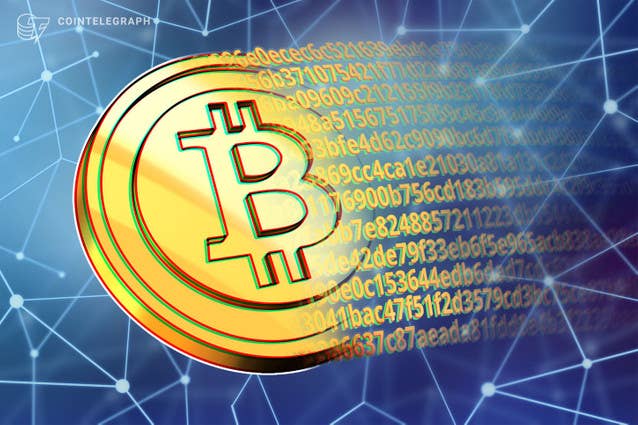
In recent years, Bitcoin has gone from being a mysterious term in niche tech circles to a global financial phenomenon. As we enter 2025, more people than ever are asking: What is Bitcoin, and how does it actually work? Whether you’re curious about investing, using it, or just understanding the hype, this beginner’s guide breaks it down for you—step by step.
🔍 What Is Bitcoin?
Bitcoin is a type of digital currency (or cryptocurrency) that operates without a central bank or government. It was invented in 2008 by an anonymous person or group known as Satoshi Nakamoto, and released as open-source software in 2009.
Unlike traditional currencies (like the dollar or euro), Bitcoin is decentralized, meaning it runs on a network of computers around the world using a technology called blockchain.
🧱 What Is Blockchain?
To understand how Bitcoin works, you need to understand its underlying technology: blockchain.
A blockchain is a distributed digital ledger—a list of records (called blocks)—linked using cryptography. Each block contains:
- A list of transactions
- A timestamp
- A reference to the previous block (hash)
This system ensures transparency, security, and immutability, which means that once a transaction is recorded, it cannot be changed or deleted.
💡 How Does Bitcoin Work?
Let’s break it down in simple terms:
1. Creating Bitcoin (Mining)
New bitcoins are created through a process called mining. This involves powerful computers solving complex mathematical problems. When a problem is solved, the miner is rewarded with new bitcoins and the transaction is added to the blockchain.
🔎 Fact: In 2025, the reward for mining one block is 3.125 BTC, and it will keep decreasing due to the halving mechanism.
2. Sending and Receiving Bitcoin
To send or receive Bitcoin, you need a wallet. A Bitcoin wallet contains a private key (secret) and a public address (visible to others). When someone sends you BTC, they send it to your wallet’s address.
Every transaction is verified by the network and then added to the blockchain, making it permanent and traceable.
🏦 Is Bitcoin Money?
This is a common question. According to financial experts, Bitcoin can be considered money because it functions as:
- A medium of exchange – You can use it to buy goods or services.
- A store of value – Many people hold Bitcoin as a hedge against inflation.
- A unit of account – Prices can be denominated in BTC.
However, Bitcoin is volatile, which means its price can swing dramatically in a short time. This is one of the reasons why it’s still not widely accepted as day-to-day money.
🧠 Why Is Bitcoin Important?
Bitcoin is considered revolutionary for several reasons:
- 🔐 Privacy and Security: You control your own funds—no bank involved.
- 🌍 Global Access: Anyone with internet access can use it.
- 💸 Low Transaction Fees: Especially for international transfers.
- 🏦 Alternative to Fiat Money: Bitcoin can act as a hedge against traditional currency inflation and political instability.
🛡️ Is Bitcoin Safe?
Bitcoin itself is very secure thanks to the cryptographic design of blockchain. However, how you store and manage it matters a lot. Common risks include:
- Losing your private key (you lose access to your funds).
- Hacking (if using online wallets or exchanges).
- Scams (never share your seed phrase or private key).
✅ Tip: Use a hardware wallet (like Ledger or Trezor) for maximum security.
📈 Should You Invest in Bitcoin in 2025?
Bitcoin is often referred to as “digital gold.” While it’s not risk-free, many investors include it in their portfolios as a long-term investment.
In 2025, Bitcoin continues to gain traction:
- Major financial institutions now offer BTC services.
- ETFs (Exchange Traded Funds) make it easier to invest.
- Regulatory frameworks are becoming clearer in many countries.
Still, you should never invest money you can’t afford to lose, and always do your own research (DYOR).
🧰 Tools to Get Started with Bitcoin
Here are a few beginner-friendly tools and platforms to help you get started:
| Tool | Purpose |
|---|---|
| Coinbase / Binance | Buy, sell, and trade BTC |
| Ledger / Trezor | Hardware wallets |
| Blockstream Explorer | View blockchain transactions |
| CoinMarketCap | Track price and market data |
| Bitcoin.org | Official resource for learning |
🧭 Final Thoughts
Bitcoin isn’t just a currency—it’s a new financial paradigm. Whether you’re interested in investing, using it, or just understanding the future of money, learning about Bitcoin is a powerful first step.
In 2025, Bitcoin is more relevant than ever. With proper research, safe storage, and a long-term perspective, you can be part of one of the most transformative financial revolutions of our time.
💬 Have questions about Bitcoin or want a guide on how to buy your first BTC? Drop a comment below!